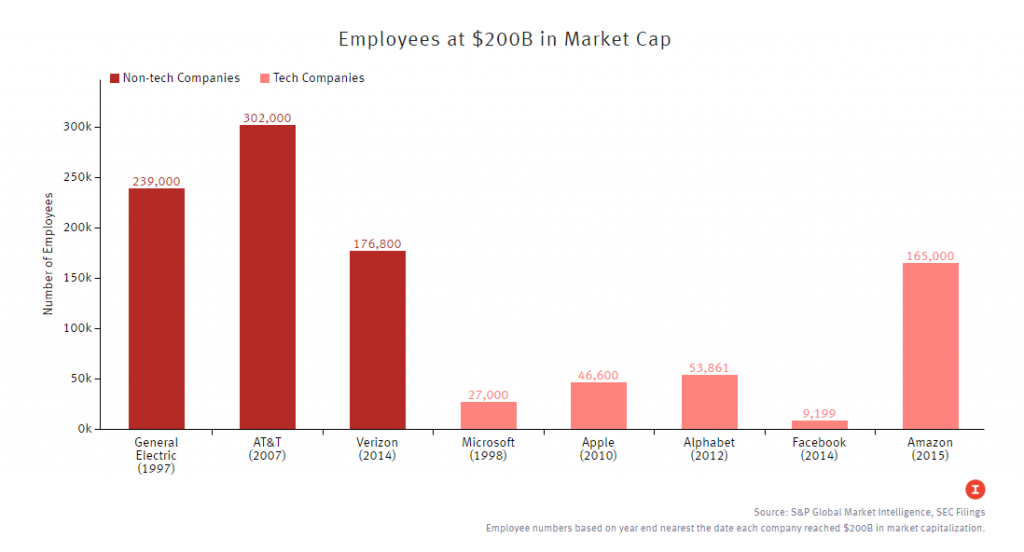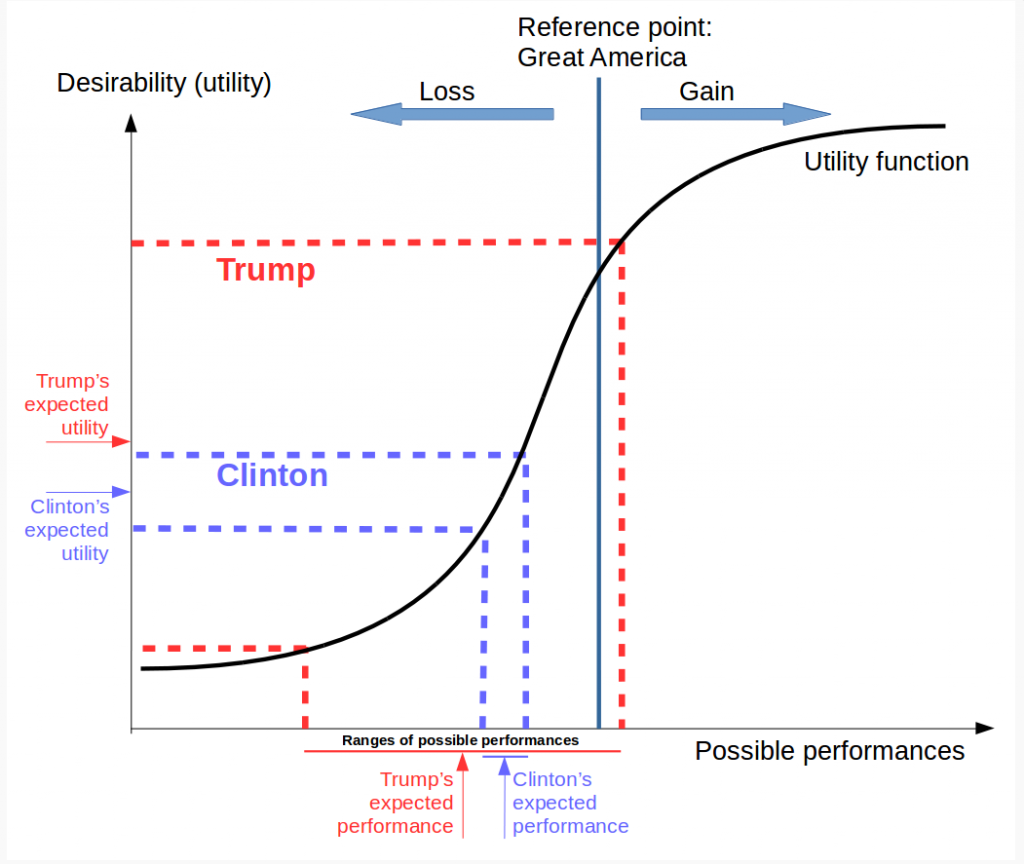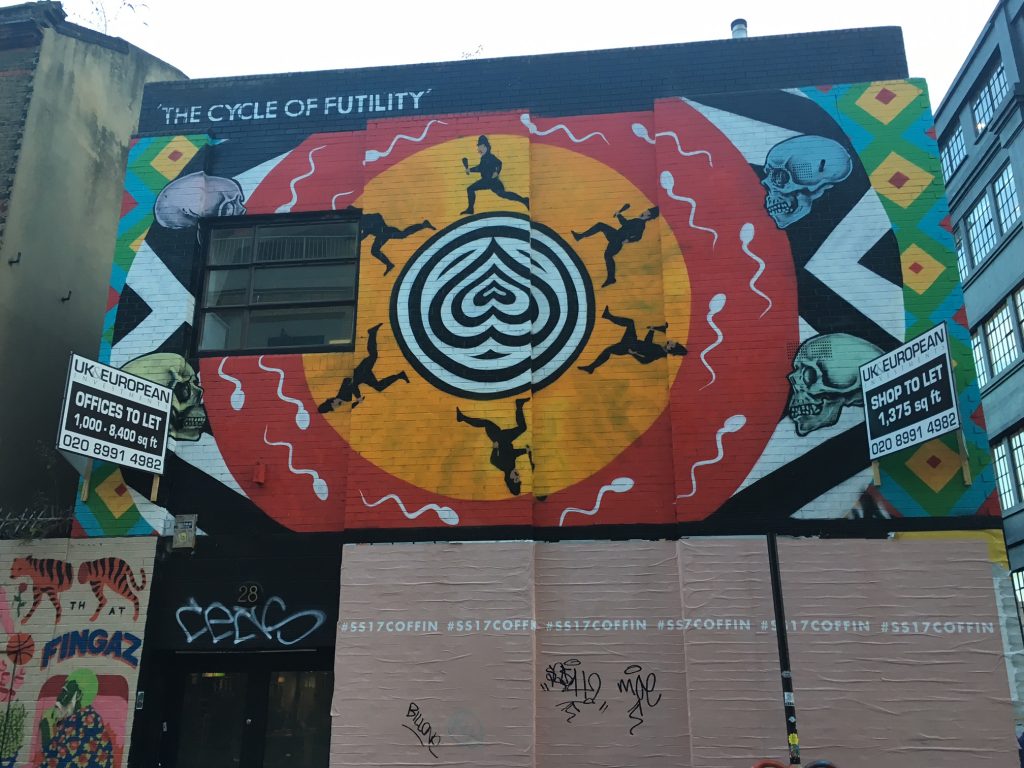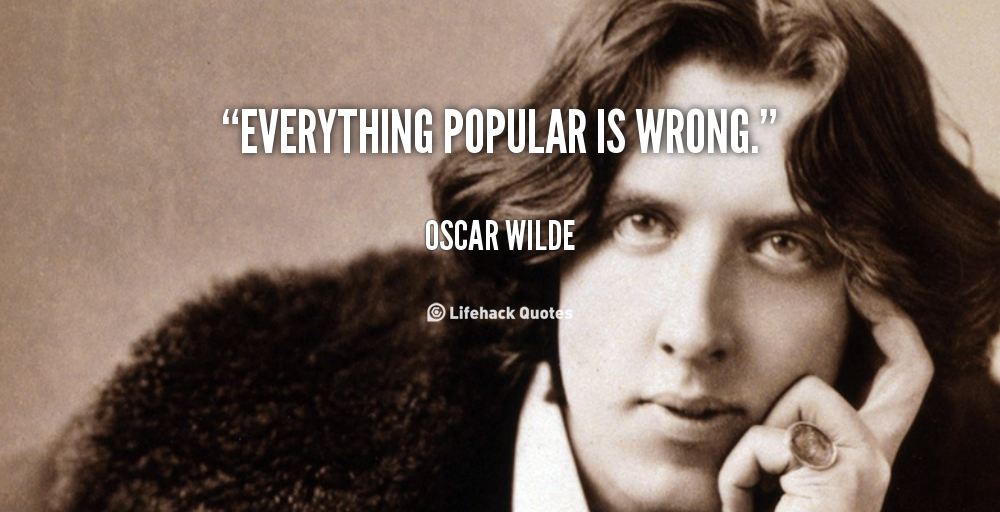Post-Truth
[avatar user=”malm” size=”small” align=”left” link=”file” /]
post-truth: relating to or denoting circumstances in which objective facts are less influential in shaping public opinion than appeals to emotion and personal belief.
The Oxford Dictionary no less suggests we are officially living in a post-truth world in case it wasn’t evident already. Some things really are happening though:
This isn't an episode. This isn't marketing. This is reality.
— Black Mirror (@blackmirror) November 9, 2016
Resource depletion as outlined a couple of weeks ago is also real enough. No amount of populist dissembling by conspiracy theorists can spin the reality that humans as a species are over-consuming natural resources to such a degree that it will leave a scorched and harsh legacy for future generations. Nothing less than a total mindset shift on economic growth is needed to move away from the current incrementalist paradigm in which recycling is lauded but in reality is barely affecting the fundamentals. Each year we are digging ourselves deeper into collective debt:
Resource depletion arguably gets less attention from climate change deniers particularly of the nationalist variety because there is no obvious positivist angle to take on proceedings without behaviour change or coordinated intervention between countries at a global level. Other than perhaps a techno-utopian overconfidence that science and technology will rescue us (eg. in the form of nanoassembly etc). The new rules courtesy of Vivek Wadhwa are a good starting point for understanding the libertarian beliefs of many of its exponents:
1. Anything that can be digitized will be.
2. Your job has a significant chance of being eliminated.
3. Life will be so affordable that survival won’t necessitate having a job.
4. Your fate and destiny will be in your own hands as never before.
5. Abundance will become a far bigger problem than poverty.
6. Distinction between man and machine will become increasingly unclear.
It is increasingly clear, however, that digital technology will struggle to create the volume of jobs needed to replace those being obsoleted from old industries:
That’s why universal basic income is intrinsically linked with a mindset shift on growth. The growing urgency and seeming intractability of the problem landscape on the limited confines of Planet Earth has led many to the ultimate escapist techno-utopian solution – getting off the planet. Stephen Hawking this week suggested we have a timebox of 1000 years left to do it.
Post-Trump
The post mortems continued all week as the realization sank home particularly amongst shellshocked liberals everywhere that Donald Trump is going to be in charge of the US in less than 2 months time. The Guardian pulled together a collection of long reads in an attempt to make sense of proceedings. Discontent with globalization was clearly a factor with some suggesting it marked the end of the long post-war period of neoliberalism:
“Now pro- vs. anti-globalization has replaced left vs. right as the dividing line of a new political era.”
The new division could equally be viewed in another older light – that of sense and sensibility. To be replaced by uncertainty for now. One of the most interesting and insightful analyses employed Prospect Theory from the field of behavioural economics to explain why so many Brexit/Trump voters were willing to exchange uncertainty overall lower expected performance to the relative safety of voting for the status quo – the latter had a lower range of expected performance with less perceived chance of change:
one may prefer an option that has on average worst prospects and high uncertainty (wide range of possibilities) to an option that has better prospect on average and low uncertainty. … With Trump and Brexit voters, we face people who, perceiving that they have lost something, are willing to take high risks. Economic frustrations cause risk seeking preferences, which contribute to motivating votes for Trump and Brexit.
The extent to which the ascent of Trump was predictable exercised many with extensive references to Michael Moore’s spookily prescient prediction written earlier this year. It’s also largely predictable what happens from here in. Trump will have to retract and withdraw the more extreme elements of his agenda to bring his performance range within conventional establishment scope and there are some early signs of that happening already. And as he does so, a degree of relief and a sense of complacency will set in. However, nobody should be complacent about developments. History shows us that eternal vigilance is necessary:
Trump is anything but a regular politician and this has been anything but a regular election. Trump will be only the fourth candidate in history and the second in more than a century to win the presidency after losing the popular vote. He is also probably the first candidate in history to win the presidency despite having been shown repeatedly by the national media to be a chronic liar, sexual predator, serial tax-avoider, and race-baiter who has attracted the likes of the Ku Klux Klan. Most important, Trump is the first candidate in memory who ran not for president but for autocrat—and won.
The Atlantic considered how technology helped support the white power movement that some suggest helped power Trump to victory and others even more controversially suggest “we should listen to” to understand how digital tribalism is evolving. However, the role and importance of social media in determining the outcome remains contested in spite of the furore over “fake news” on Facebook which is evolving its very own post-truth reality that may yet turn into a full-blown crisis for the company. And all the while, more and more evidence emerges of the negative impacts of Facebook use on human health and happiness:
People’s emotional life improves significantly when they quit Facebook for 1 week… Millions of hours are spent on Facebook each day. We are surely better connected now than ever before, but is this new connectedness doing any good to our well-being? According to the present study, the answer is no…
The sense of gloom over the week seemed compounded by the untimely death of another liberal icon, the singer Leonard Cohen. Quartz compiled a Spotify playlist of his work to “make sense of the world”.
Artificial Intelligence
Kyle McDonald is “an artist working with code”. In this excellent Medium post he outlines in some depth a number of extended experiments at artistic expression he has conducted with a variety of machine learning toolkits. The ground he covers splits into these main four areas:
- Convolutional Neural Nets (CNNs): used to build a supervised model that can categorise distinct image types based on detection of feature differences such as edges or spots using convolutions of image patches with different kernels. Examples of such categories include: cats vs. dogs (2 categories), smiling faces vs. not smiling faces (2 categories) or handwritten digits from 0-9 (10 categories). Google’s Deep Dream framework is a key one used by McDonald and he outlines a number of fun applications built with it.
- Recurrent Neural Nets (RNNs): used to build a supervised model that can generate novel output based on absorbing basic structure of a suitable amount of training example text. Andrej Karpathy’s groundbreaking work on RNNs is the inspiration for his own fiddles.
- Dimensionality reduction: unsupervised learning using T-SNE and word2vec to visually cluster text.
- Autoencoders: neural network topologies that perform unsupervised learning to reconstruct their input as their output after undergoing successive rounds of compression followed by decompression. A form of dimensionality reduction that is particularly applicable to image regeneration.
A video of MacDonald covering the same material is available here:
And here is a Deep Dream grocery trip he references that is wilder than anything Hunter S. Thompson imagined:
Several of the examples provided in McDonald’s post are built on machine learning frameworks such as Keras and Theano. In this post, Adrian Rosebrock explains why momentum is dramatically shifting to TensorFlow following Google’s launch of the platform last year. It seems likely to become a de facto standard platform for expressing and generating neural network topologies from CNN and RNN to autoencoders driven by this remarkable dynamic:
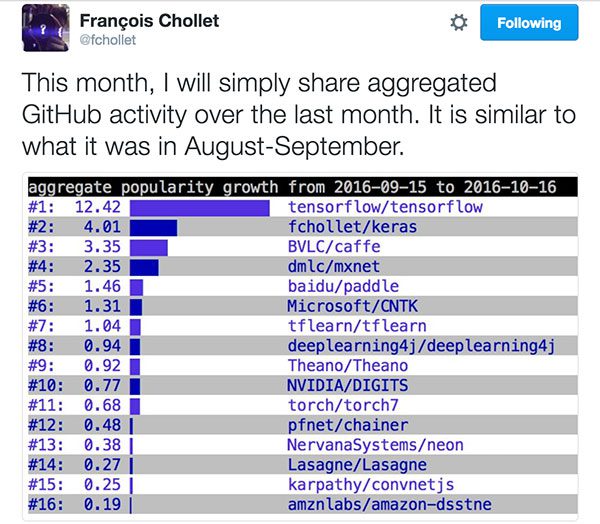
In the post Rosebrock explains how to switch Keras (which uses a Theano backend out of the box) over to a TensorFlow backend.
Monkey Learn’s Tarsier tool was highlighted in the blog recently. This post examines what the tool uncovered from sentiment analysis of Twitter traffic – namely that Trump generally remained ahead of Clinton right through November:

Cloud
The Information are reporting that Amazon are planning a new deep learning cloud service proposition for AWS to counter the growing threat TensorFlow popularity represents:
The service aims to be an alternative to Google’s wildly popular open source deep learning tools, called TensorFlow, and thereby shore up a rare weak spot in the armor of AWS.
AWS have over 4500 open positions they are hiring for!
If you are interested in joining @awscloud we have 4569 open positions. Go check out https://t.co/eVC6GIoZ9q to find your dream job pic.twitter.com/uIBtmIsQwU
— Werner Vogels (@Werner) November 12, 2016
Management
Critical things smart people never say include being negative, lazy, overconfident, dismissive and of course blaming someone else. Experience suggests this latter is all too common though:
“It’s never a good idea to cast blame. Be accountable. If you had any role—no matter how small—in whatever went wrong, own it. If not, offer an objective, dispassionate explanation of what happened. Stick to the facts, and let your boss and colleagues draw their own conclusions about who’s to blame. The moment you start pointing fingers is the moment people start seeing you as someone who lacks accountability for their actions. “
Humility and doubt are important qualities to cultivate in order to temper overconfidence. Relatedly, ArsTechnica publish a timely reminder of the landmark Dunning Kruger effect more than ten years on from its initial unveiling in an academic paper. The effect suggests an inverse correlation between someone’s actual and perceived abilities. The ArsTechnica piece points out that narcissism is a ‘primary correlate’ for poor self-evaluation. Territory explored in comedic form by creations like Alan Partridge. And now in real life in the USA where chippy amateurism at least in politics seems to be the rage. Good luck America:
The higher people ranked on a narcissism test, the more likely they were to estimate their abilities to read people highly. … Although narcissism correlated to self-evaluation, it did not correlate to actual performance.
FirstRound post on the three conversations managers need to have with their direct reports to be in a position to help them develop:
1. Take an hour to get to know your employees — deeply.
2. Spot their lighthouse and bring it into focus.
3. Create a career action plan.
Post Hipsterism
Peter York Hipster Handbook on BBC iPlayer was an excellent examination of the new hipster movement which emerged from New York at the turn of the century and appears to have made itself at home in Hoxton and Shoreditch in London. York’s thesis is that it is a strange beast at once unifying and atomising in its core emphasis on the authentic in an era when many who qualify for the label are doing jobs far removed from physical labour those areas were associated with in the past. The pivotal role played by enterprise typically in the form of artisanal and craft activity is also explored but perhaps the most revealing observation is that neo-hipsterism seems ultimately to be a largely apolitical and “nice” consumer movement essentially about curation rather than creation.
Even so, there is plenty of interesting street art around the streets of Shoreditch, some of it political in nature and witty to boot. Here are a few samples I picked up on a walk in the area this week in part inspired by the program:
This one visible on Redchurch Street is courtesy of INSA and comes with its own app that animates the spiral. The app works with this photo as well if you want to try it out:
One suspects that the rise of nationalist populism will alter the dynamic for hipsterdom and maybe even hasten a darker successor. The signs are already there judging by this poster on the number 55 bus stop:
Over a hundred years ago, a shocking and unexpected reversal in fortune had a similar effect on Oscar Wilde arguably the hipster icon of his age who ended up in Reading Gaol where he wrote his eponymous ballad. Coincidentally the gaol is now open to the public for a limited period in a haunting exhibition curated by Artangel. Wilde’s cell and prison books are available for inspection, mute testament to a darker time which seems to have come into sharper relief this year:
The claustrophobic experience of being in an old Victorian prison and standing within its cells and the panopticon of the governor’s office offers a dark vision of humanity. Those shrilly advocating the “locking up” of various individuals would do well to stand and contemplate what it involves:
It’s an essential and sobering reminder through the ages of the price that has been paid for social progress in the face of intolerance. Something that we would all do well to reflect upon. Particularly in the light of one of Wilde’s most famous and timely contrarian quotes:
